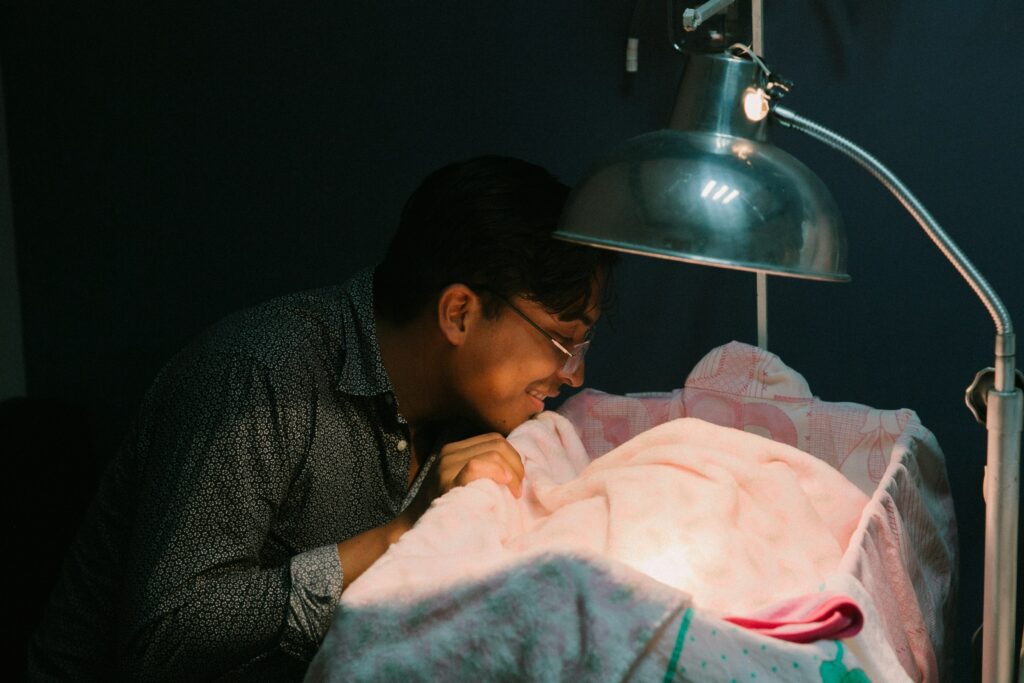You’ll be happy to know that healthcare for children in Spain is high-quality and free for residents who work and live in the country. Spanish public healthcare covers a number of maternity services. However, only private healthcare insurance covers giving birth in Spain’s private facilities.
The downside? You’ll almost always need a native Spanish speaker by your side when navigating that healthcare system.
This guide explains what you need to know about having a baby in Spain and what services are provided by the public Spanish healthcare system. It covers the following questions:
- Pregnancy and childbirth in Spain: an overview
- Accessing maternity services in Spain
- Insurance for maternity costs in Spain
- Pregnancy testing in Spain
- Prenatal care in Spain
- Giving birth: Delivery in Spain
- Postnatal care in Spain
- Registering your baby’s birth in Spain
- Non-residents, visitors, and tourists giving birth in Spain
- Spanish maternity and paternity leave
- Tips for mothers in Spain
- Helpful terms when having a baby in Spain
- Useful resources
Cigna Global
Expecting a baby in Spain? Enjoy peace of mind with Cigna Global’s private healthcare. Gain access to top maternity care, pediatricians, specialists, and a global network tailor-made for your growing family. Start your parenting journey with confidence – Cigna Global has you covered.
Pregnancy and childbirth in Spain: an overview
Fertility indicators have fallen over the past few decades in Spain. The average number of children per women has gone from 2.03 in 1981 to 1.16 in 2022. However, Spain’s magnetic appeal and its popularity with expats have influenced birth statistics. 24.4% of all births in 2023 were to couples where at least one parent is a foreigner; there are regional variations, however. Some 49% of births also now happen outside marriage in this strongly Catholic country.
When it comes to healthcare, the degree of medical contact with pregnant women is reasonably high in Spain. There are more antenatal tests, scans, and interventions during childbirth than in other countries. Spanish healthcare is of high quality, both public and private. Women generally require a private insurance policy for coverage of maternity costs (e.g., 6–12 months). On the other hand, state healthcare doesn’t have any time restrictions.

In larger cities, maternity facilities are very comprehensive, ranging from large hospitals to smaller clinics. Larger facilities are usually run under the social security system, while smaller providers are via private health insurance in Spain. With the public system, you’re likely in the care of a midwife for the duration of the birth. You may not always have the same midwife throughout your pregnancy. The doctor is only likely to come if there are complications or special procedures.
Even if you don’t have insurance, Spain is one of the more inexpensive places to give birth. You’ll likely pay around €1,800, with any complications adding minimal costs.
The Spanish aren’t big believers in home births and there are no regulations around the practice. Expats keen on keeping things as natural as possible should practice due diligence. Ensure that backup is available in case of an emergency.
Accessing maternity services in Spain
Maternity health services are available through your local health center (centro de salud or centro de asistencia primaria, shortened to CAP), or by an individual practice as a general doctor (médico de cabecera). Ask friends and colleagues for recommendations if you want to consult an English-speaking professional. Remember that you can – and should – shop around to find a doctor you’re happy with.
Expats living and working in Spain are likely already paying health insurance through social security contributions towards state healthcare cover. If you’ve just moved to the sunny climes of Europe’s fourth-largest country, you can find out more about registering with a doctor in Expatica’s guide about doctors in Spain. In general, it’s worth remembering that Spanish health authorities are decentralized; systems can differ between regions.
Insurance for maternity costs in Spain
Spanish public healthcare covers a number of maternity services. Only private healthcare insurance covers giving birth in private facilities.
Maternity care when having a baby is Spain is not included under the European Health Insurance Card (EHIC) scheme that covers public healthcare for EU nationals. All foreigners should sort out their Spanish health insurance in advance. Being registered for social security is also necessary to receive the standard maternity leave of 16 weeks.
Mothers thinking about giving birth at a private clinic generally must have held their policy for six to 12 months before becoming pregnant. It may be difficult to find an insurer after this period.
Ministry of Health statistics put the rate of cesarean operations in Spain’s public hospitals at around 25.2% of live births. In the private sector, 28% to 38% of women have their babies via C-section. This is partly because more women take advantage of being able to fix their delivery date with private healthcare. Enquire about procedures and in what circumstances the hospital feels a C-section may be necessary.
If you’d rather access private maternity care, why not explore your options on SaludOnNet? They offer a comprehensive overview of the available providers in your area.
For expats on the move, an international health insurance plan may be the best option – and their maternity coverage is often very comprehensive. Some of the largest global health insurance companies which provide maternity coverage in Spain include:
Pregnancy testing in Spain
Home pregnancy tests (pruebas de embarazo) are available over the counter at pharmacies (farmacias) for €10 and online at €7.
Alternatively, you can ring your local clinic (centro de asistencia primaria) directly and book in a consultation with a doctor. You’ll typically see a midwife, who will ask about your own medical history and family history. It’s best to be accompanied by someone who speaks Spanish.
Prenatal care in Spain
Once you think you may be pregnant, contact a doctor or primary care center (Centro de Asistencia Primaria) as soon as possible to confirm the pregnancy. Spanish doctors arrange routine blood tests and ultrasound scans. Many clinics have a community midwife who arranges monthly antenatal appointments with progress recorded in the consultation document, or mothers’ passport.
After your first meeting with a doctor, you’ll see a midwife once every four weeks for the first 32 weeks and then every two weeks. If there are complications, you may require weekly appointments.
Many clinics have a community midwife (comadrona/llevadora) who will arrange monthly antenatal appointments with progress recorded in the consultation document, also called a pregnancy booklet (cartilla de embarazo) or mother’s passport. You’ll receive this document at your first appointment.
Clinics may or may not provide assistance with doulas. Spanish nurses spoke out against the emotional support assistants in 2015 and questioned their role, after which some doulas stopped working. The Asociación Española Red Circular de Doulas, established in 2011, has around 40 members across the country.
Scans, tests, and checks
Spanish professionals monitor a pregnancy’s progress pretty thoroughly. Soon after the first appointment, you’ll head to the local hospital for a scan.
Doctors conduct a number of tests for diabetes, toxoplasmosis, and HIV. You will also have regular blood and urine tests. Three ultrasound scans – one each trimester – are the standard requirement to monitor the health of both mother and fetus. They also check for any deviations from the norm.

As the birth draws nearer there will also be a test for streptococcus B, which is compulsory in state hospitals. If you receive treatment at a private hospital, doctors conduct tests upon request. Be aware that Strep B is an infection you can pass on to the baby during delivery; most physicians recommend getting the test.
The Spanish Association of Pediatrics recommends that pregnant women get the TDAP vaccine – the inoculation against tetanus, diphtheria, and pertussis (whooping cough) – between weeks 27 and 36 of gestation.
Antenatal classes
Prenatal classes are available for mothers and often their partners. They typically start in the 25th week of pregnancy, although it can be difficult to find them in another language.
In big cities, you’ll easily find courses in other languages, typically English, French, or German. Some courses include:
Giving birth: Delivery in Spain
When you go to the hospital to give birth, go to the emergency ward (urgencias) of the local hospital. Take your passport, foreign identification card (NIE), and necessary paperwork. English is not always widely-spoken; take someone with you who can speak Spanish and communicate your preferences concerning treatment. Spanish hospitals have standard operating procedures that they don’t necessarily run past patients; it’s important to have someone to explain what is happening to you.
Similar to Germany, hospitals in Spain do not allow gas or air, although epidurals and pethidine are available. Spanish people view birth as a medical process. Alternative birth methods, such as water births and birthing plans, are not as common in Spain. However, you can still write your birthing plan in Spanish and take it with you.
Many expats having a baby in Spain choose to give birth in a private rather than a state hospital. This is possible if you have private health insurance coverage. Treatment standards are high, but you may need to provide more yourself.
Home births in Spain
Home births in Spain are rare and not covered by the state health system. Costs of home births can range from €1,500 to €3,000. In 2023, less than 1% of Spanish midwives were registered to legally oversee a home birth in Spain. Midwives will only agree to perform a delivery at home when the pregnancy is low-risk.
Anyone looking to have a home birth in Spain needs to ensure they have medical assistance. In 2018, a couple was sentenced to 15 years in prison after their newborn daughter died following a home birth because they didn’t seek medical assistance quickly enough.
Nevertheless, there are specialists in home births. The Spanish association for home births (in Spanish) claims to represent 90% of professionals in this field.
Postnatal care in Spain
Immediately following the birth, the baby’s health will be thoroughly assessed based on the Apgar score, which rates the baby’s condition with a particular focus on heart rate, breathing, and reflexes. The assessment results in an overall score of between zero and 10. The doctor or midwife then address any concerns about the score. A score of seven or higher usually indicates that the baby is in good health. A lower score doesn’t necessarily mean there will be any long-term health problems for the newborn.

Some common duties performed by nurses in other countries, such as supporting new mothers with personal care, are not generally done by nurses in Spain. Partners, family, or friends generally must help. You can have one visitor with you throughout your time in hospital, including at night.
Most mothers leave the maternity hospital within five days. During this time, hospital staff conduct at least two checks on the newborn. A final examination includes a scan. You’ll receive an infant record book to track the child’s condition and health appointments until the age of 18. The baby also has a blood test at one week to determine if there are any genetic defects.
Postnatal classes
A range of postnatal classes exists all over Spain. The majority are in Spanish, but a large number are available in English, French, and German in expat-heavy areas. Some institutes include:
- Angels Nursing Agency, Mallorca, Menorca, and Valencia
- Bel & Mums, Madrid
- Family Medical Centre, Albir, Costa Blanca
- International Women’s Health Center, Madrid
- Laura Independent Midwife
- MamiFit
- Piscina Climatizada Nucía, Alicante
Vaccinations for children
Spain’s vaccination schedule pretty much aligned with the rest of the EU. Children up to the age of 14 are assigned a pediatrician at the local health center (Centro de Salud). The child’s record book delineates the vaccines.
The Spanish Association of Pediatrics has an official schedule for each region. The association updates it annually. Vaccines are not mandatory in Spain; nevertheless, pediatric pressure remains high. In some cases, it can be difficult to get your child into school and summer clubs here if there is no immunization record. All vaccinations in Spain are free under the national health service. Children must get vaccinations up to the age of 14 years.
Nurseries and childcare
Schooling is not compulsory for the first six years of a child’s life in Spain. Experts recommend it for the child’s development, however. The OECD reports that as of 2022 Spain has nearly full enrollment in early childhood education and care, at 95.4% for three-year-olds and 97% for four-year-olds.
It can be difficult to find information about good quality, inexpensive childcare no matter where you are, and even more difficult if you’re new to the country. Whatever your nationality, expect a few cultural clashes regarding attitudes towards child-rearing and childcare. Read Expatica’s guide to help you make the right decision for your family when choosing childcare in Spain.
Breastfeeding in Spain
Public breastfeeding is acceptable and common in Spain. Overall, however, in 2012 only 72.4% of babies were breastfed in Spain, and the numbers seem to be declining. In 2023, only 61.7% of babies were still breastfed at 6 months.
Under Spanish law, mothers can take an hour off during each workday in order to feed an unweaned child for the first nine months of a child’s life. In 2010, the European Union Court of Justice ruled that working fathers in Spain have the same rights to breastfeeding leave as mothers do.
Registering your baby’s birth in Spain
When you are being discharged following having a baby in Spain, the hospital will give you a yellow form to register the birth called a Cuestionario para la Declaración de Nacimiento en el Registro Civil. Check that the information is correct (especially your baby’s name) and that it is signed by the midwife or doctor who delivered your baby. A copy of the form is available on the Ministry of Justice website.
You must register your baby at the local Civil Registry Office (Registro Civil) within eight days of the birth. If there is a valid reason, a delay of up to 30 days is possible. If you intend to apply for a non-Spanish passport for your baby, remember to ask for a full birth certificate (certificación literal). In addition to the documentation provided by the hospital, you must also bring any national insurance documents belonging to the parents and a marriage certificate, which must be officially translated into Spanish. If the baby is born outside of marriage, then both parents must attend the registry office. Bring your passports and identity cards (and copies) just in case they verify your identity.
The registration process for an adopted child in the civil register is relatively similar as for a biological child.
You can also sign your child up to social security in Spain so that you can access free vaccinations.
Non-residents, visitors, and tourists giving birth in Spain
EU citizens who find they need to give birth while on holiday in Spain will be covered by reciprocal rules and their European Health Insurance Card is usually enough.
In line with the rest of the Schengen travel area, other visitors to Spain must have taken out a travel insurance policy. Typically, this will cover emergency delivery, but it’s best to check with your insurer if you think you’re likely to give birth on holiday. You may need to pay privately, and costs begin at around €2,000, but depending on the facility chosen, could range upwards dramatically.
Should you find you need to give birth earlier than planned in an emergency, ring the emergency helpline at 112. This number is free of charge and valid in all Spanish territories. The Spanish word for A&E department is urgencias.
If you ask a hotel or travel representative to call a doctor, they may book you into a private hospital, so be aware that you must call 112 for an ambulance and treatment under the state system.
Be aware that if you ask a hotel or travel representative to call a doctor, you may be treated privately. If you wish to be treated under the state system you must call 112 and ask for an ambulance to take you to the nearest state hospital.
Will my child have Spanish citizenship?
Spain discourages birth tourism. At least one parent must have Spanish nationality to be eligible for citizenship.
Children of non-residents only acquire Spanish citizenship at birth if at least one parent was also born in Spain (except the children of diplomats accredited before the Spanish Government); if both parents lack any nationality or if their country’s law does not assign any nationality to their children; or the children’s filiation is unknown.
Non-resident parents of minors that are Spanish nationals may be authorized to stay in the country as residents, under the arraigo familiar (family reunification) policy, if the parents live with the minor, are in charge of the child, and meet all the obligations and responsibilities required of parents. The resident status under these circumstances is granted for one year and may be extended while the qualifying conditions are still met. Parents do not automatically gain citizenship through the birth of a child.
Spanish maternity and paternity leave
Statutory maternity leave in Spain is 16 weeks, rising to 18 weeks for twins and 20 weeks for triplets, although at least six weeks must be after the birth. Maternity leave also extends to 18 weeks in certain special circumstances.
Paternity leave now matches maternity leave, with 16 weeks of entitlement. Maternity benefits are also available to women who are self-employed in Spain, provided they are registered in the Spanish social security system.

In order to qualify for maternity benefits after having a baby in Spain, you must have been paying contributions for a set period of time (zero for mothers under 21; 90-180 days for mothers aged between 21 and 26; or 180-360 days for mothers over 26). These processes can take time to complete, so it’s important to plan these things in advance.
The amount of maternity benefit you receive will depend on things like your salary, your contributions and which part of Spain you live in.
The application form for maternity benefits, including benefit for adoption or foster care, can be found online. You can read more about social security for freelancers in Spain.
Additional support for mothers
Extended maternity leave is also available for women who cannot perform their job because it puts their pregnancy at risk. Extended benefits are also offered to breastfeeding mothers if their job prevents them to nurse. After birth, breastfeeding mothers are eligible for two paid, half-hour daily breaks to either feed or express milk. Both are available through social security.
Support for mothers after birth or adoption is slightly limited in Spain. Women often rely on strong family networks. You can, however, always visit the midwife at your local health center for help or questions, or visit a pediatrician. In some popular expat areas, you can also find English-speaking mothers groups and midwives for support. However, most women go back to work immediately after the 16 weeks, which means mother and baby groups are less common. Thus, the standard option for daycare is the nursery (guarderia), which often takes children from a few months old and upward.
Child benefits in Spain
Since 2025, families receive a 200€ monthly stipend per child.
If your family experiences financial difficulties because of your child’s birth or adoption, various benefits are available if you are a resident of Spain.
In case your yearly income does not exceed €11,605.77 (or €17,467.40 if you have a large family of at least three dependent children), you can apply for benefits currently set at €291 a year per child until the children turn 18. If you have children with disabilities, benefits are awarded of between €1,000 to €6,658.80 per year, depending on the severity of the disability.
You may also be eligible for benefits for multiple birth or adoption if you give birth to or adopt two or more children at the same time, from €2,943.60 upwards.
More information, including the documents required, is available from the European Commission.
Tips for mothers in Spain
- Spaniards adore babies – don’t be alarmed if passers-by ask questions, peek into your stroller, play with or kiss your baby or openly offer opinions on your child-raising choices, even your baby’s name.
- Public breastfeeding is acceptable – in general, you do not need to worry about covering up. Says Michelle: “There’s a strong culture and acceptance of breastfeeding which makes it easier to get out of the house and do things.”
- The Spanish population are generally respectful to pregnant women and new mothers, and will give up their seat on public transport or risk the disapproval of a bystander.
- Strangers are open to sharing their mothering advice; a common comment will be on whether your baby is dressed appropriately for the weather or if your baby isn’t wearing shoes or something to keep their feet warm.
- It is not uncommon for baby girls to get their ears pierced, which helps avoid gender confusion, so don’t be offended if people mix up your baby’s gender if you opt not to do it.
- Children are accepted into all parts of society. It is acceptable to take a stroller into restaurants and bars, and children are allowed to stay up late with adults. You are unlikely to get disapproving looks for having a screaming baby in public.
- Not all facilities cater for babies, and you may find restaurants and bars lack changing areas. In such cases, people generally don’t bat an eye if you change your baby in public.
Helpful terms when having a baby in Spain
- Midwife: matrona/comadrona
- Epidural: epidural (stress on ‘al’)
- Scan: ecografía
- Maternity scan ward: tocología
- To give birth: dar a luz (literally ‘to give light’)
- Expressing how many months pregnant you are: Estoy embarazada de x méses
- To breastfeed: dar el pecho.
Useful resources
For easy reference, we’ve pulled together the websites you need to consult when having a baby in Spain. You’re welcome.
- Spain’s National Health System
- Registration of Birth: Ministry of Justice
- Spanish Social Security: Tresorería General de la Seguridad Social
- Contributory maternity and paternity benefits













